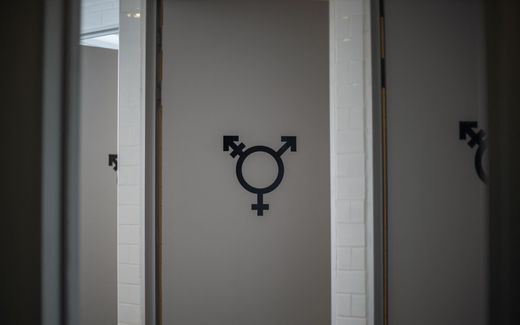Norwegian commission wants to limit use of puberty blockers

Little is known about the effects of gender reassigning treatment. Therefore, a Norwegian commission calls for carefulness. Photo AFP, Andy Buchanan
Northern Europe
The Norwegian commission Ukom, which was tasked with investigating the treatment of gender dysphoria, warns that the treatment may not guarantee the safety of patients.
Young people and children who experience discomfort with their biological gender are now often treated with puberty blockers, hormones and surgical gender reassignment, Dagen writes.
Stability
However, Ukom points out that there is only limited knowledge available on the longer-term consequences of these types of treatment. “This is particularly true for the teenage population, where the stability of gender incongruence is also not known. There is a lack of research-based knowledge about the treatment of patients with non-binary gender incongruence”, the commission writes.
It considers this knowledge base crucial for safety guarantees. And if this knowledge base is lacking, “the national professional guideline creates expectations in patients that the health service can only fulfil to a small extent”, the commission states.
Therefore, Ukom has several recommendations. One is that the Ministry of Health and Care should revise the current national professional guideline. Puberty blockers and hormonal and surgical gender reassignment should be defined as experimental treatments.
Efficacy
According to Dagen, this means that efficacy and safety have not been sufficiently documented to be part of the usual treatment offer and that patients are not entitled to the treatment. In addition, the Ministry of Health and Care should consider creating a national medical quality register for gender reassigning treatment of children and young people.
Stine Marit Moen, head of medicine and health sciences at Ukom, says to Dagen that it is necessary to clarify what sound practice is and to set up services “to look after children and young people.” According to her, the latter will “ensure that children and young people receive support and help while also preventing incorrect or unsafe treatment.”
She points out to Dagen that the current practice in Norway is inconsistent. “There is a danger that some practitioners may refuse treatment, while others may go to great lengths to meet needs. We see that the health service is not designed for the needs of this group.”
Marianne Brattgjerd from the organisation Genid that works with relatives of people with gender incongruence calls the report a breakthrough in the field. Genid has advocated for a conservative approach to gender incongruence for a long time. “We see this as a turnaround and we are at crossroads now”, she tells Dagen. She says to hope that politicians will take measures in response to the report.
Related Articles








